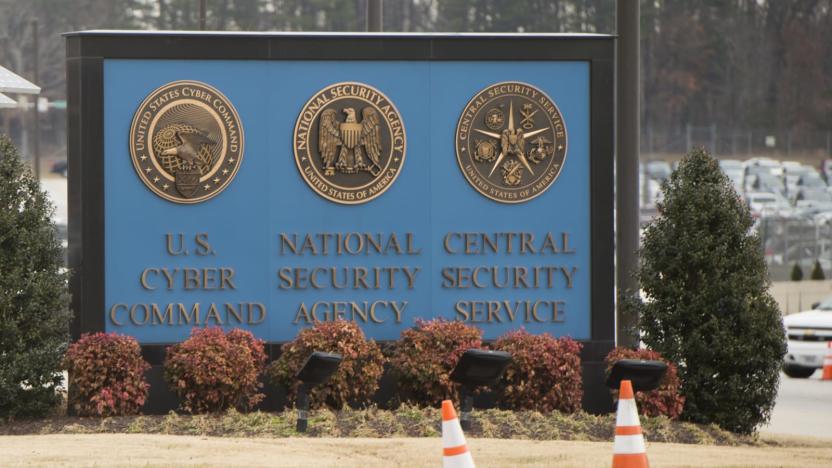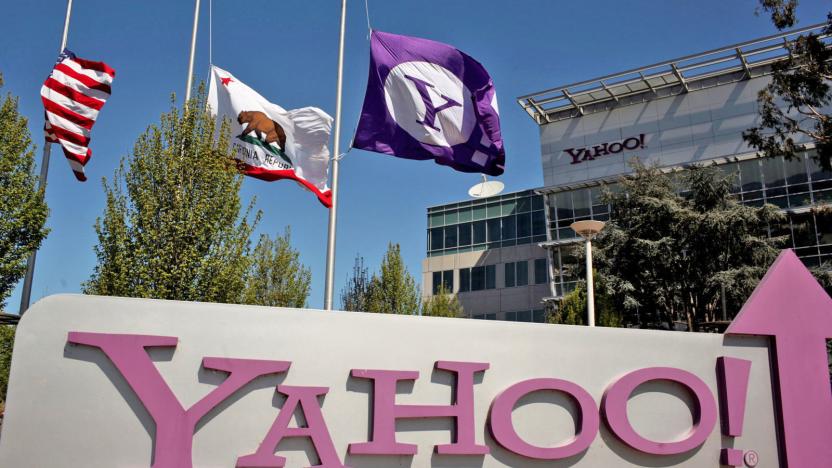USAFreedomAct
Latest

Senate passes Patriot Act amendment strengthening independent oversight
Senators are currently deciding on amendments to address surveillance enabled by the Patriot Act. One measure intended to prevent warrantless collection of your search history failed, while one that strengthened independent oversight passed.

NSA deletes hundreds of millions of call records over privacy violations
The NSA unfortunately has a long history of violating privacy rules, although this time the agency might not be entirely to blame. The NSA is deleting hundreds of millions of call and text message data records (collected since 2015) after learning of "technical irregularities" that led to receiving records it wasn't supposed to obtain under the USA Freedom Act. General counsel Glenn Gerstell told the New York Times in an interview that "one or more" unnamed telecoms had responded to data requests for targets by sending logs that included not just the relevant data, but records for people who hadn't been in contact with the targets. As it was "infeasible" to comb through all the data and find just the authorized data, the NSA decided to wipe everything.

Reuters: Yahoo email scanning done with a Linux kernel module
In the ever evolving saga of Yahoo's email servers and who could peek into them, the latest nugget comes from a Reuters report that the scanning program operated at a deeper level than mail filters for porn or spam. Citing three former employees, it now says the scanning was done via a module attached to the Linux kernel itself. While the more technically-minded wondered why this method would've been employed at all, others like Senator Ron Wyden called for the government to release the FISA order apparently ordering the surveillance.

The NSA's mass US phone surveillance ends tonight
The National Security Agency's long-running mass phone surveillance program is coming to an end. As promised, the USA Freedom Act will forbid the NSA from indiscriminately collecting Americans' call metadata at midnight on November 29th. Agents will have to get court orders to collect data from telecoms regarding specific people or groups, and then only for six months at a time -- they can't just scoop up everything in case something useful turns up. The NSA will still have access to five years' worth of legacy data through February 29th, but that's as far as its access will go.

NSA won't look at call metadata collected under the Patriot Act
The National Security Agency is apparently willing to make a clean break from the past now that the USA Freedom Act is forcing it to scale back its large-scale surveillance efforts. The organization now says that it won't analyze call metadata collected under the Patriot Act from November 29th onward. It'll hang on to that data for another three months for "integrity purposes" (that is, verifying that new collection techniques are working) and as long as civil lawsuits require, but the goal is to destroy that info "as soon as possible." This doesn't put an end to mass surveillance (that's still practical under the new law), but it will prevent the NSA from digging through historical info that many critics believe it shouldn't have kept in the first place. [Image credit: AP Photo/Patrick Semansky]

Senate passes USA Freedom Act (update: signed by Obama)
For the first time since the 9/11 attacks, both houses of Congress have agreed to limit the government's domestic surveillance powers. Earlier today, the Senate voted 67 to 32 and passed the USA Freedom Act, echoing the House's vote in May. The bill is designed to counter the Patriot Act's controversial section 215 -- the bit that enabled the NSA to collect phone records en masse, request "roving wiretaps" and seize business files -- just one day after the provision officially expired. Update: According to several press reports, tonight President Obama signed it into law.

US limits the NSA's reach ahead of sweeping reform
The Senate has voted overwhelmingly to reform the powers of America's security services, at the expense of renewing existing provisions of the Patriot Act. In a contentious debate leading up to midnight, the house belatedly opted to support the USA Freedom Act, which will eventually end the bulk collection of phone metadata. By opting not to extend the existing legislation, agencies such as the NSA and FBI will supposedly no longer have unfettered access to our phone records, be able to request "roving wiretaps" or seize business records for an investigation.



